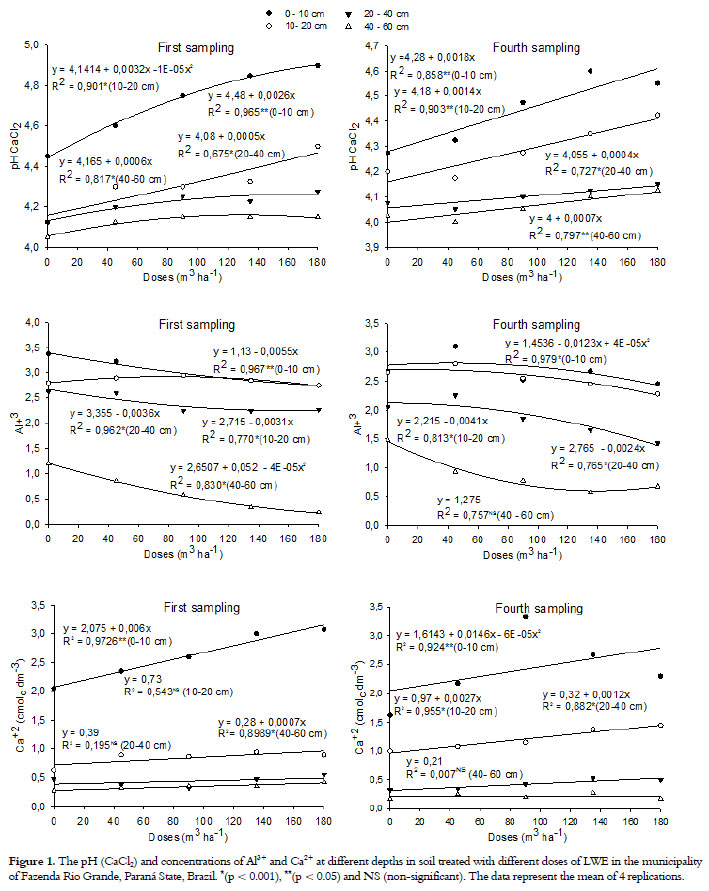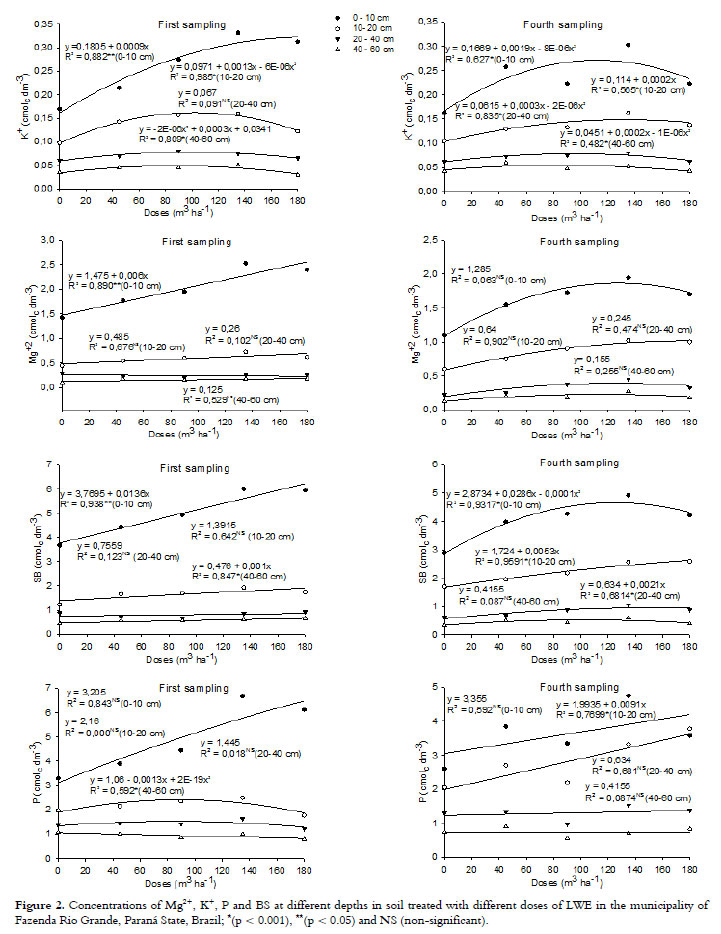Farmers have used liquid waste from the enzyme industry as fertilizer. To determine the impact of liquid waste from enzymes (LWEs) on soil properties, plant growth and nutrient content in pasture, an experiment was conducted with five different rates of LWE application (0, 45, 90, 135 and 180 m³ ha-1) to a Cambisol in August 2006. In August 2007, 60 m³ ha-1 of LWE was applied in every treatment. Soil was sampled on four different dates and at four different depths (0-10, 10-20, 20-40 and 40-60 cm) to verify changes in its chemical properties. Soil was improved in terms of acidity and availability of Ca2+, Mg2+, K+ and P in the 0-10 cm layer, indicating that the effect of LWE is corrective concerning these attributes. There was also improvement in pasture quality through increased levels of N, P and K in plants during the first year of waste application. The use of larger doses of LWE led to increases in productivity (42.6 kg dry weight m-3 residues). These results indicate that the application of LWE is feasible for the fertilization of this grassland containing low-fertility acidic Cambisol.
soil acidity; forage; carbon; fertilizater







